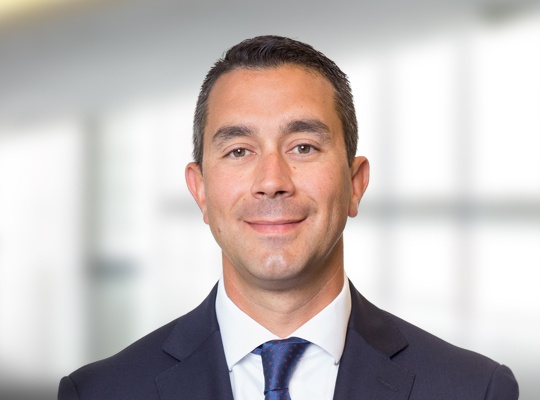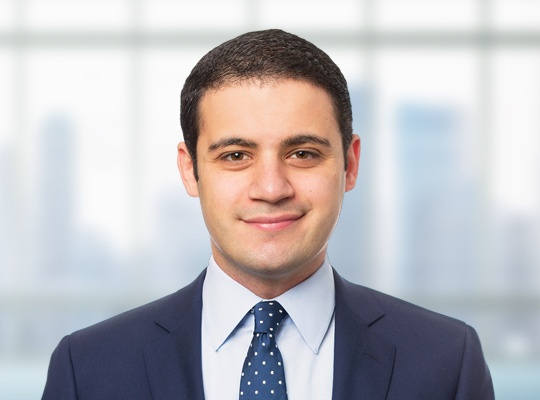Under New Leadership, SEC Articulates Changes to Enforcement Program
Key Takeaways
- The priorities expressed by the Enforcement Staff during the recent Practicing Law Institute’s SEC Speaks Conference echoed themes Chairman Paul Atkins has expressed during his decades-long career, including as a former SEC Commissioner.
- The Enforcement Staff expressed an intent to revert to the historical core mission of the SEC, with a focus on the protection of retail investors, particularly vulnerable populations (including seniors), and bringing cases based in fraud (e.g., insider trading, accounting and disclosure fraud, offering fraud, market manipulation, and breaches of fiduciary duty).
- The Enforcement Staff also indicated that there will be a greater emphasis on holding individual wrongdoers accountable and tailoring relief to harmed parties.
- The Enforcement Staff will provide more transparency regarding the Staff’s enforcement activities, especially through early outreach to and discourse with defense counsel, as well as providing counsel with transparency regarding legal theories and greater access to the Staff’s files, including key testimony and evidence, to promote a more meaningful dialogue.
- The Enforcement Staff also expressed a renewed commitment to cooperation credit and indicated that they may be willing to exercise discretion in appropriate cases to decline to bring an enforcement action where there was self-reporting, cooperation and remediation.
- The public perception that in light of the change in administration, as well as the reduced headcount at the agency, the SEC is significantly scaling back its Enforcement program was directly addressed and refuted by the Enforcement Staff and other participants at the Conference.
Introduction
For those who have followed Chairman Atkins over the years, it is likely that nothing said by the staff (the “Staff”) from the SEC’s Division of Enforcement (the “Division”) during the annual SEC Speaks Conference on May 20, 2025 (“SEC Speaks” or the “Conference”) came as a surprise. Instead, the direction of the “new” Division in 2025 appears largely consistent with past positions expressed by Chairman Atkins throughout his career, including during his time as an SEC Commissioner from 2002-2008. Among other things, Chairman Atkins has been a vocal proponent for the protection of retail investors, of “transparency” in how the Staff operates, and “predictability” in “both procedure and substance,” including with regard to corporate penalties and settlements and what it takes to receive cooperation credit.1
During his opening remarks at the Conference, Chairman Atkins announced that the Commission is “getting back to [its] roots of promoting, rather than stifling, innovation.”2 Commissioner Mark Uyeda also shared this view in his remarks, noting that “[s]taying on course is an important objective, from which the Commission strayed mightily from its historical path [during a period] where the SEC’s enforcement bite has been lurking below the surface like a great white shark, waiting for its next meal.”3
The Staff offered their own commentary during the Conference regarding the future direction of the Enforcement program stating an intent to get “back to basics” and to address “core perennial areas.” Additionally, Samuel Waldon, Acting Director of the Division, after being asked about “creativity” in some enforcement charges during the previous administration, represented that going forward he expects the Commissioners will ask hard questions and that the Staff will be pressed by the Commissioners to “tie our recommendations back to the law.” This is consistent with a prior statement by Mr. Waldon shortly after he assumed the role of Acting Director where he noted: “Creativity is probably not where we want to be."4 Abandoning “creativity” also aligns with Chairman Atkins’ view that market participants and their advisers “should be able to predict whether conduct is permissible or prohibited.”5
During her opening remarks, however, Commissioner Caroline Crenshaw offered a “a word of caution” regarding the intended direction of this Commission, stating that the “the agency [is] chip[ping] away at decades of our own work…as we stare down alarming market volatility, emerging risks and calls for deregulatory action in all corners of our markets.”6 This perception appeared to be top of mind for the Enforcement Staff. Mr. Waldon acknowledged that there have been — and will be — some changes from the previous administration, including “how we allocate resources” and “different priorities,” but he cautioned attendees that changes will not be “nearly as stark and pronounced as some are predicting.” Commissioner Hester Peirce shared a similar sentiment in her opening remarks: “The Commission — consistent with its investor protection mission — will continue to vigorously pursue securities fraud….”7
Other members of the Staff, as well as former Commissioners Daniel M. Gallagher and Elad L. Roisman, who participated in the Enforcement Division panel, likewise sought to assuage concerns regarding the future of the Enforcement program. Commissioner Roisman addressed the issue head on noting that the concern about “the death of enforcement is [] overplayed,” and Commissioner Gallagher underscored the point commenting that the idea that enforcement is going away is “crazy” as it is a “central function of the agency.”
Reorganization of Enforcement Division
Before addressing the priorities of the Division going forward, Mr. Waldon provided insight into the current structure of the Enforcement Division and changes in reporting lines. Specifically, four deputy directors now oversee the Division of Enforcement: three focused on geographic regions (Northeast, West and Southeast), and one overseeing the Division’s five specialized units. The specialized units include: the Asset Management Unit, the Complex Financial Instruments Unit, the Cyber and Emerging Technologies Unit, the Market Abuse Unit, and the Public Finance Abuse Unit.
As Mr. Waldon and Jason Burt (Deputy Director of the Specialized Units) explained, the reorganization is intended to, inter alia, reduce reporting lines, create a more unified nationwide program, ensure enforcement is applied equally across the country, and reaffirm the Commission’s commitment to its regional offices. Despite losing many Enforcement Staff members, as overall Commission headcount has decreased by approximately 15%,8 Mr. Waldon affirmed that the Division’s focus on “core areas” would continue even with more limited resources and different priorities.
Enforcement Priorities – “Back to Basics”
During the general Enforcement panel and a subsequent “workshop” session, senior Staff of the Enforcement Division set forth the “core areas” and other priorities that would guide the Division’s work from both a substantive and process perspective. While many topics were addressed, the overriding theme throughout the Conference, as it was for the Staff during the first Trump administration, was addressing harm to retail investors.
Protection of Retail Investors
Fraud targeting retail investors and vulnerable populations, as well as non-fraud cases where the conduct is particularly egregious, recurring and results in investor harm, are top of mind for the Staff. The Staff emphasized the Commission’s commitment to focus on vulnerable populations, such as seniors and low-income individuals, and to tailor relief to harmed parties.
Conduct Based in Fraud
Fraud cases are perennial issues for the Enforcement Staff, including, inter alia, insider trading, accounting and disclosure fraud, offering fraud, market manipulation, manipulation of financial performance, false books and records, and breaches of fiduciary duty. Specifically, with regard to asset managers, the Staff noted that the focus of the Asset Management Unit will be on misappropriation, misleading strategy disclosures, undisclosed conflicts of interest, undisclosed fees and expenses, prohibited trade practices, affiliated transactions, and violations of the duties of care and/or loyalty.
Cybersecurity and Artificial Intelligence
Emerging technology, cybersecurity compliance and other cyber-related misconduct are predictably also in scope. The Staff is well aware that scammers are better able to use increasing technological developments to expand the scope of investment/monetary schemes such as love/relationship scams, fake investment websites and hacks. Broadly speaking, the focus will be on seeking out those using innovation to harm investors, an admittedly broad and evolving mission.
In the area of emerging technology and artificial intelligence, focus areas include: use of artificial intelligence/technology to commit fraud; misrepresentations about the use of artificial intelligence in the investment process/strategy; and deepfake generation and market manipulation. On the cyber front, the Staff also acknowledged the challenges faced by issuers when they are victims of cybersecurity incidents and represented that they would investigate with that context in mind and will be focused on the quality of the issuer’s disclosures.
Complex Financial Instruments
In the area of complex financial instruments, the Staff aims to be more proactive in understanding new products and new risks to investors. Focus areas will include Reg BI with particular attention on products that are complex, illiquid or present higher risks to investors, including structured products and securities-based swaps. The Staff will also be keeping an eye on the markets for collateralized loan obligations, private credit and mortgage-backed securities. Eric Werner (Chief of the Complex Financial Instruments Unit (“CFI”)), also noted that CFI will be looking for early engagement in its investigations, meaningful cooperation (creative resolutions), and he discussed the use of reverse proffers, counsel presentations and whitepapers earlier in the course of an investigation.
Focus on Individual Wrongdoers
Chairman Atkins has expressed concerns over the years about the possibility that corporate issuers might agree to a large corporate penalty, which is ultimately borne by the shareholders, “in order to avoid or soften actions against culpable individuals.”9 Mr. Waldon and other Staff members made clear that they expect to continue focusing on bringing cases against individual wrongdoers. While the size of corporate penalties under this Commission is uncertain,10 the Commission intends to hold all individuals on the corporate ladder — from executives to lower-level employees — accountable for violations of the securities laws. Relevant factors when evaluating individual misconduct include, inter alia, the culpability of the individual (scienter) and the severity of the offense. The Staff will also evaluate the role of other individuals and the degree to which they tolerated the activities or attempted to stop them from occurring.
Embracing Greater Dialogue and Open Jacket Policy
Chairman Atkins has long been a proponent of an “open jacket” policy at the SEC. For example, almost 20 years ago, at the 2008 PLI SEC Speaks Conference then-Commissioner Atkins noted that he:
would like to see … a written and uniform “open jacket” policy for Enforcement matters. This is not a novel idea. Those of you who practice in the area of criminal defense may recognize that phrase. That means the government shows defense counsel the evidence it has against the defendant. That is called due process. If we have a strong case and feel we can win in court under the “preponderance of the evidence” standard (which is far short of the “beyond a reasonable doubt” standard in criminal cases), should we not be open with our evidence? In addition to protecting the rights of individuals and companies, an open jacket policy has practical benefits to the SEC; defense counsel sees the evidence the SEC has against its client and, as a result, is less inclined to fight it out in court.11
During the Conference, Enforcement Staff indicated that defense counsel will have greater access to the Commission’s files, including key testimony and evidence, to promote a more meaningful dialogue, except in circumstances where sharing such information may be limited because of whistleblower involvement or ongoing criminal proceedings. Jaime Marinaro, Associate Director of the Fort Worth Regional Office, emphasized this new approach in the context of the Wells submission process, highlighting the importance of reverse proffers to the Wells process and affirming that the Commissioners will take an active approach to reviewing Wells submissions.
Enforcement Staff also represented that the Division intends to be more transparent in its enforcement activities, especially through early outreach to and discourse with potential targets, including transparency regarding legal theories. Antonia Apps, Deputy Director for the Northeast, also noted that the Staff will be more willing to work with defense counsel during the enforcement process by, for example, permitting counsel to meet with senior leadership once the investigation is complete and ripe for discussion with all facts available. This focus on greater transparency and dialogue makes clear the Commission will strongly value early and frequent engagement in an effort to, as Mr. Werner said, “look[] for results as quickly and efficiently as possible.”
Greater Cooperation and Self-Reporting Credit
Enforcement Staff also expressed a renewed commitment to cooperation credit for timely self-reporting. Kate Zoladz, Deputy Director for the West, represented that the Staff may choose not to bring an enforcement action against a self-reporting violator if the party fully remediates and discloses its wrongdoing to the Staff. However, in keeping with Chairman Atkins’ long held views, cooperation credit will not be given for waiving attorney-client privilege or work product because cooperation credit for those who waive privilege operates as a punishment for those who do not.12
Conclusion
Under Chairman Atkins, the regulatory priorities of the SEC have shifted in favor of innovation and a pull back from rulemaking and perceived regulation by enforcement. At the same time, enforcement of the federal securities laws plays a critical role in protecting investors and compensating harmed investors, as well as maintaining confidence in the integrity and fairness of the U.S. markets. The bread-and-butter work of the Division will continue but creative or novel theories of liability are less likely to be embraced by this Commission, and anticipated changes to the Division’s processes should lead to more transparent and efficient investigations.
Footnotes
[1] Speech by SEC Commissioner: Remarks to the “SEC Speaks in 2008” Program of the Practicing Law Institute, Commissioner Paul Atkins (Feb. 8, 2008) (“2008 Atkins Speech”); see also Fordham Journal of Corporate & Financial Law, Vol. 13 Issue 3, “Evaluating the Mission: A Critical Review of the History and Evolution of the SEC Enforcement Program,” Paul S. Atkins and Bradley J. Bondi, pp. 367-417 at 410 (2008) (“Atkins-Bondi Fordham Article”).
[2] Paul S. Atkins, Prepared Remarks Before SEC Speaks (May 19, 2025).
[3] Mark T. Uyeda, Remarks at the “SEC Speaks” Conference 2025 (May 19, 2025).
[4] Reuters, SEC to focus on traditional cases under new leadership, acting director says (Mar. 24, 2025).
[5] 2008 Atkins Speech.
[6] Caroline A. Crenshaw, A Reckless Game of Regulatory Jenga - Remarks at “SEC Speaks” (May 19, 2025) (“Crenshaw Remarks”). She also indicated later in the remarks that the Commission had effectively “shut down its enforcement program.”
[7] Hester M. Peirce, New Paradigm: Remarks at SEC Speaks (May 19, 2025).
[8] See also Crenshaw Remarks, citing Chairman Paul S. Atkins, Opening Remarks at the SEC Town Hall (May 6, 2025) (“The Offices and Divisions have decreased headcount by 15% since the beginning of the current fiscal year.”); see also Douglas Gillison and Chris Prentice, “US SEC Buyouts Hit Legal, Investment Divisions Hardest, Data Shows,” Reuters (May 16, 2025).
[9] See, e.g., Atkins-Bondi Fordham Article at 415 (2008).
[10] The SEC’s penalty authority and its use have long been an area of concern for Chairman Atkins. For example, in 2006, in his opening remarks at the 2006 SEC Speaks Conference, then-Commissioner Atkins asked:
Is there a propensity for our enforcement attorneys to use the amount of penalties as a yardstick for their own performance? What else should a junior staff member conclude when our own official SEC press releases announcing senior staff departures include lists of the significant penalties obtained during their tenure? … Are penalties — for their own sake — a proxy to show how effective we are in doing our job? What effect has that on the rest of our program, and on cases that are important but lack zeros.
Speech by SEC Commissioner: Remarks of Commissioner Paul S. Atkins Before the SEC Speaks Conference (Mar. 3, 2006).
He also quoted an internal study by former Chairman Harvey Pitt stating that the system “fails to recognize staff members who promote the division’s goals by conducting well-run investigations that ultimately do not uncover violations.” Id.
[11] 2008 Atkins Speech.
[12] 2008 Atkins Speech (“[A]s I have said in the past, in measuring cooperation, the SEC should neither credit nor debit a company for its decisions regarding waiver of the attorney-client privilege. Crediting waiver amounts to the inevitability of waiver, and the SEC should never adopt a position that leaves a person no meaningful choice on the waiver of such a fundamental privilege.”).
Related Professionals







